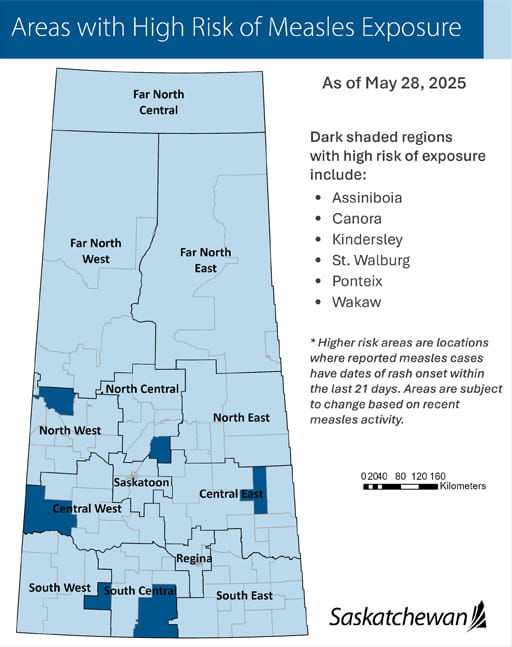
Introduction
In recent weeks, Saskatoon has been at the center of concerns regarding measles exposure risks. Measles is a highly contagious viral disease that can cause severe health complications, especially in young children and individuals with weakened immune systems. With recent reports of measles cases in the region, it is crucial to understand the implications for public health, vaccination efforts, and community safety.
Current Situation
As of October 2023, public health officials in Saskatchewan have confirmed a rise in measles cases, particularly in urban centers like Saskatoon. Health authorities have traced the outbreak to a traveler who visited a measles-endemic area and subsequently exposed others in public settings, including schools and shopping centers. The Saskatchewan Health Authority is actively monitoring the situation and encouraging the public to be vigilant regarding their vaccination status.
The exposure risk has raised alarms among health professionals, considering measles can remain airborne for up to two hours after an infected person leaves the area. Consequently, the health authority has issued alerts urging anyone who may have been at risk to review their vaccination records or seek inoculation.
Public Health Response
In response to the increased cases, the Saskatchewan Health Authority has ramped up vaccination clinics and outreach programs, targeting high-risk populations who may be vulnerable to exposure. During the outbreak period, individuals are recommended to ensure they are vaccinated with two doses of the MMR (measles, mumps, and rubella) vaccine, which is 97% effective at preventing measles.
Additionally, public health campaigns have been launched to educate residents about the symptoms of measles, which can include fever, cough, runny nose, and a distinctive rash. Early identification and isolation of infected individuals are crucial to curbing the spread of the disease.
Conclusion
The measles exposure risk in Saskatoon serves as a stark reminder of the importance of vaccination and community health awareness. As the city faces this outbreak, health officials emphasize the significance of herd immunity, which protects those who cannot be vaccinated due to medical reasons.
Residents are encouraged to stay informed and take proactive measures to protect themselves and their loved ones. As health authorities work diligently to handle the outbreak, the community’s cooperation will be vital in preventing further spread and ensuring public safety.



